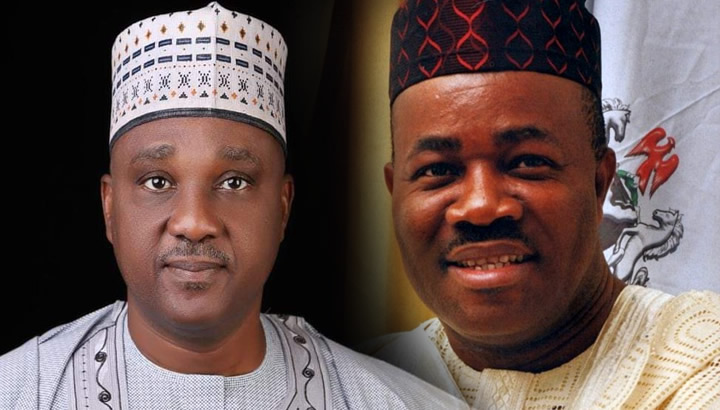557
By Myke Agunwa
The Global Coalition for Freedom of Religion in Nigeria (GCFRN), a consortium of ten organisations, has called on Senate President Godswill Akpabio and House Speaker Tajudeen Abbas to address the underlying issues that led to Nigeria’s designation as a “Country of Particular Concern” (CPC) by the United States.
This is just as it warned that reports of planned National Assembly delegation to the United States could backfire if lawmakers fail to address religious freedom violations at home.
In a statement issued on Tuesday and signed by Emmanuel Ogebe of the Justice for Jos Project, Washington D.C., alongside nine others, the coalition said that “A delegation that proceeds without first addressing the documented violations within Nigeria risks international ridicule and undermines Nigeria’s credibility.
“Denial without corrective action could be interpreted as governmental complicity or weakness” it warned.
The coalition noted that U.S. Commission on International Religious Freedom’s (USCIRF) 2025 report, recommended Nigeria’s designation as a CPC due to persistent and severe violations spanning blasphemy laws, Sharia codes, forced closure of Christian schools, abductions, killings, and ethno-religious tensions across the North and parts of the Federal Capital Territory.
“These concerns are not new. For over two decades, USCIRF has documented systemic barriers to religious freedom in Nigeria,” GCFRN added.
The coalition drew historical links to British colonial policies restricting Christian missionary activities across northern territories that now enforce Sharia law, adding that Christians continue to face discrimination in land access, worship rights, and educational opportunities.
“In states like Kano, Katsina, Sokoto, and Borno, Christians struggle to obtain Certificates of Occupancy for churches while mosques flourish even on private lands,” it said. It also highlighted cases of universities denying Christian students suitable worship spaces and the destruction of churches during past crises.
The coalition expressed deep concern over ongoing abductions and forced conversions of Christian girls by extremist groups, citing unresolved cases such as Leah Sharibu and over 80 missing Chibok girls. It accused government agencies of failing to prosecute perpetrators in high-profile killings, including Deborah Emmanuel in Sokoto and Eunice Olawale in Abuja.
“The current administration, with a Muslim-Muslim leadership, has not addressed these historical imbalances, further deepening fear, marginalization, and impunity,” the group said.
To reverse the country’s deteriorating image, GCFRN urged the National Assembly to immediately begin legislative reforms. These include investigating religious freedom abuses, repealing unconstitutional blasphemy laws, outlawing rights-violating religious policing bodies like Hisbah, and ensuring equitable land access for Christian worship.
It also called for the establishment of a National Board for Christian Religious Studies to achieve parity with the National Board for Arabic and Islamic Studies, and for laws that protect Christian students from being compelled into Islamic studies or practices.
The coalition further demanded the recovery of communities occupied by insurgents, safe resettlement of displaced citizens, and accountability in all outstanding abduction cases. It also asked lawmakers to amend the Human Rights Commission Act to specifically include the monitoring of religious freedom violations.
“We urge the National Assembly to hold hearings on the state of religious freedom in Nigeria,” the coalition said, pledging to provide evidence and testimonies to support the process.
“Legislative inaction risks further international scrutiny and damage to Nigeria’s global standing,” the statement warned, stressing that urgent, meaningful reforms were necessary to restore confidence in Nigeria’s commitment to equality, justice, and constitutional governance.
GCFRN concluded by reaffirming its willingness to support legislative initiatives that guarantee freedom of thought, conscience, and religion for all citizens.



